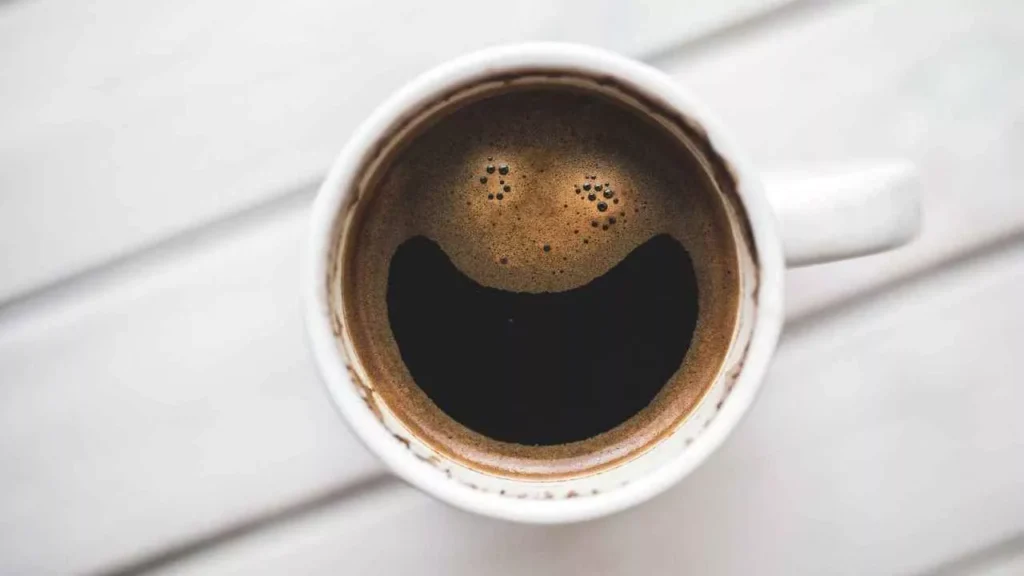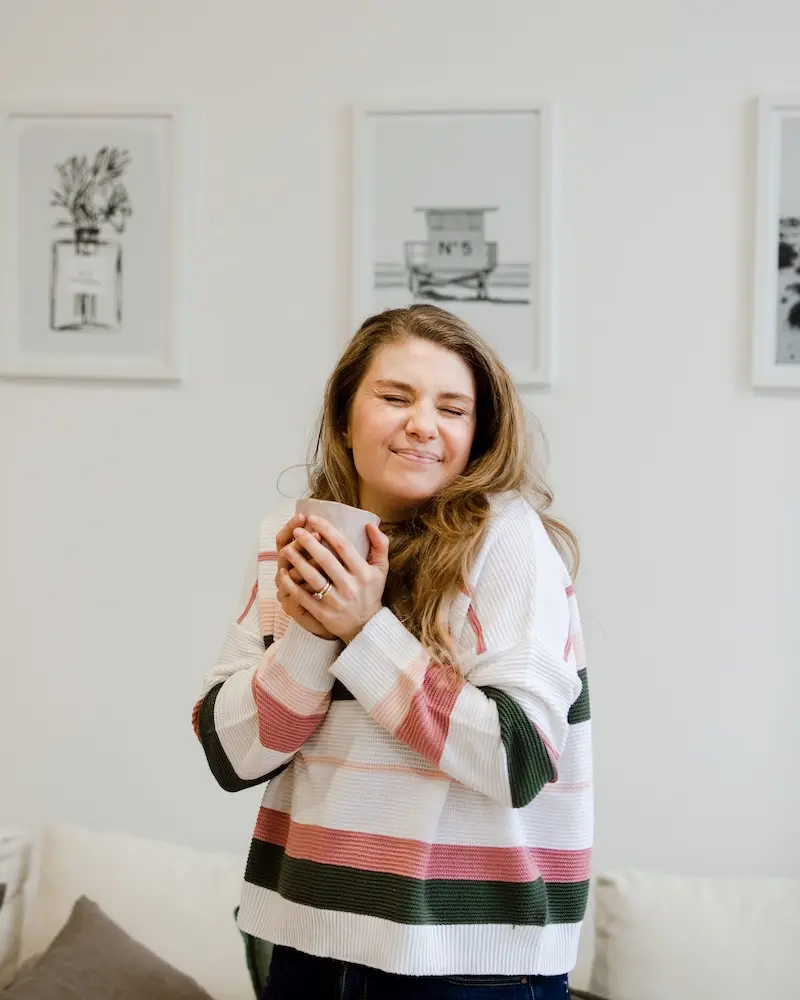Find out what effect your caffeine intake can have on your baby during pregnancy and breastfeeding.
What effect does caffeine have on your baby, earth-side? Could the caffeine in your diet be making your little one unsettled?
Let me know if this is a familiar scenario to you, mama.
You’ve spent ages settling your little one only to have them waking up every 30 mins or so. You’ve tried everything you can think of and as you go through the checklist in your head you think – I do drink a fair bit of coffee!
And this is a question you want to be answered! No mama wants to compromise her newborn baby’s sleep! If there is anything you can do to help them settle (and stay settled!) you will do it.

Why coffee is so good
Mmm, that black gold. That liquid elixir helps you feel like you can conquer anything. I don’t know about you but making my morning coffee is something I look forward to. The whole thing is a bit of a ritual. We, adults, enjoy coffee, and there’s nothing wrong with that.
You’re familiar with the effects this beverage has on you. You’ve heard about the nervous system stimulant that is of such help on those dark, early mornings. That’s right: caffeine.
Caffeine can have a bad rep sometimes. You’ve probably heard that it’s sensible to limit (if not, have a listen to the podcast episode I did on caffeine to learn about what, why and how). Too much and say hello to jitteriness, a beating heart you can feel, and maybe even an increase in anxiety.
The effect of caffeine on my baby during pregnancy
This is true for all people; add pregnancy into the equation and the amount of caffeine we consume becomes even more important.
In fact, it’s not only when you’re pregnant that regulating your caffeine intake becomes relevant. It’s also very important to not overconsume when you’re trying for a baby. The podcast episode I mentioned above goes into detail about the effects that caffeine can have on your fertility and growing baby. It’s well worth your while to listen in!
In a nutshell, caffeine consumption increases the risk of miscarriage in a linear fashion. This means that the more caffeine you consume, the greater your risk of miscarriage. In fact, there is no safe level of caffeine to consume. That is, in having any amount of caffeine there is a risk of miscarriage compared to not having it at all.
That’s why some women decide that for the time they are trying to conceive and while they are pregnant, they will limit – if not remove – any caffeinated products from their diet. And that choice is entirely up to you.
Here’s what we know about how caffeine affects adults
Caffeine is broken down by our livers at a rate that varies between adults but is somewhere between five to seven hours for half the caffeine to lose its stimulating properties. That means, for most of us, it takes six hours to be left with half the caffeine in our system; twelve hours to have one-quarter of the caffeine in our system; and 18 hours to have one-eighth the caffeine!
You can see that it hangs around for quite a while. Since it stimulates our brains (if you’re interested, it blocks a receptor in your brain that responds to drowsiness. That’s why when the caffeine wears off you feel a sudden drop in energy and suddenly very sleepy. More caffeine, please!) we know that caffeine also disrupts the deep sleep phase of our sleep cycle. Deep sleep is where most of the restoration happens. After a decent deep sleep, we feel rested and rejuvenated. Caffeine blocks our ability to reach that deep sleep effectively. As a result, we wake more often during the night and when we get up in the morning, we do not feel rested. Again, bring me my coffee!
Could caffeine do this in babies too? Would it explain their frequent waking?
Any caffeine that mothers consume can only affect their babies if it is transferred to their breastmilk. Formula-fed babies, therefore, would not be affected by the amount of coffee a mother drinks.
What is the effect of caffeine in breast milk?
This will vary for each mother, and how many caffeinated products they have had. Generally, the levels of caffeine in breastmilk will peak one hour after consumption. So, if you have your coffee and then wait an hour or so until your next feed, the levels of caffeine will be on the decline again (but remember the half-life of caffeine is long, so it will decline slowly).
Studies have shown that caffeine can cause fussiness, jitteriness, and poor sleep patterns in babies. However, these are in cases where the mother has consumed about ten or more cups per day .
Are you doing that? If yes, then consider reducing your intake gradually. I emphasise gradually because caffeine withdrawals are real! You can get in touch with your dietitian to help you find alternative beverages that will be your new go-to if you feel you would like support.
However, to most of you concerned mothers, you’re not having nearly that much! And so, it is unlikely that the caffeine you are drinking is affecting your baby’s sleep. The recommendation for how much caffeine to consume while breastfeeding is the same as when pregnant: 200mg/day from all caffeine sources.
How much caffeine am I having?
That is equivalent to:
- 1-2 cups espresso coffee
- 3-4 cups plunger coffee
- 3-4 cups instant coffee
- 4 cups black tea
- 5 cups of green tea
- 10 cups decaf long blacks
A quick note. If your baby was born premature or is still quite young, their ability to break down the caffeine in your breast milk is less and your baby may be more susceptible to the effect of caffeine.
Of course, you can always try reducing the overall amount of caffeine and see if it makes any difference to your baby’s sleep. But I’m going to bet that, like me, that coffee is very helpful in getting you through the day!
Just be sure to not have caffeine too late in the day. Knowing that caffeine lingers, you don’t want it preventing you from getting that much needed deep sleep. Getting enough sleep is hard enough as it is with a baby without caffeine getting in the way!
Hey, I’m Hannah. I’m a NZ registered dietitian using my nutrition powers for good – helping women get their dream families and giving the next generation a chance to live with less chronic disease. Find out more about how you can get your dream fam, faster.
P.S. Are we friends on socials? If not, come say hi!
Find me at @ohgoodness_nutrition on both Instagram and Facebook.
For real-life fertility stories and expert advice on what to consider if you’re thinking of having a baby, you can find the other episodes of the podcast here.
If you have a listen to our podcast, don’t forget to leave a review – we’d love to hear your feedback and suggestions for upcoming episodes!


